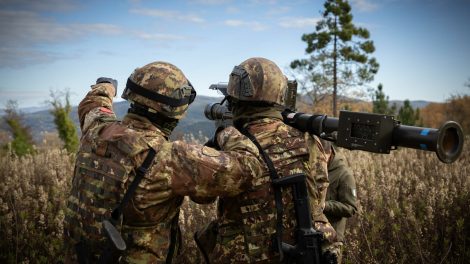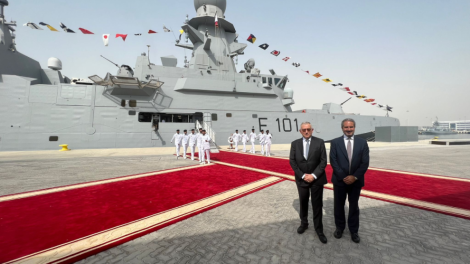NATO is moving. With Ukraine currently facing a critical battlefield in the northeastern Kharkiv region, NATO Secretary General Jens Stoltenberg recently urged allies to permit Ukraine to launch attacks inside Russia. These words sparked a debate in Western capitals, especially after rumours suggested the US administration would ease restrictions.
- Other countries, including Canada, Poland, Germany, the UK and France, have also voiced direct support for this move and have granted Ukraine the freedom to utilise weapons they provided in attacks on Russian territory.
- The issue has dominated discussions at the informal meeting of NATO foreign ministers in the Czech Republic on Thursday and Friday.
Italy’s position. Following a public declaration reported a few days ago, Rome’s government has ruled out the possibility of allowing Ukraine to use Italian weapons to attack Russia on its territory.
- Defence Minister Guido Crosetto said: “We assist, including military aid, to an aggressed nation to defend itself and regain its violated sovereignty. The constitution, the laws and our international position do not, in my opinion, allow us to do anything else.”
- Along the same line, Foreign Affairs Minister Antonio Tajani stated that Ukraine has to inform how the Italian weapons sent are used and that the Italian weapons “have to be used on Ukrainian territory to defend the country’s territorial integrity.”
- Finally, Transport Minister Matteo Salvini insisted that “Italy is not at war with Russia” and, therefore, Italian military equipment must be used on Ukrainian territory.
A subtle balance. The government is navigating a complex scenario, trying not to inflame a large part of public opinion against supplying arms to Ukraine. It’s also keeping an ally like the Russian-friendly League’s Matteo Salvini on board while maintaining a pro-Atlantic position and staying within a complex constitutional framework. The country must also uphold its commitments to its international allies and maintain its international posture.
- In this context, Prime Minister Giorgia Meloni’s words should be interpreted when she states that the government’s strategy is to strengthen Ukraine’s ability to equip itself with effective anti-missile defence systems.
- Reportedly, Italy is preparing to supply a new SAMP/T air defence system.
- Additionally, Italy has signed a bilateral security agreement with Ukraine to help improve the country’s defences, support its defence industry and counter hybrid threats.
No divisions within the Alliance. At the end of the meeting in Prague, Foreign Minister Tajani reassured that there was absolutely no divergence within NATO.
- “There is great unity in the political strategy supporting Ukraine, with some countries having different rules and laws,” he stated.





